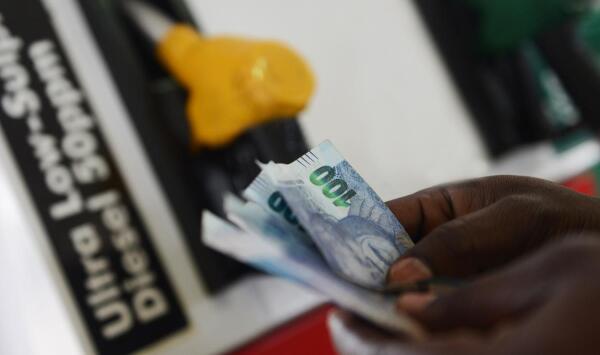In what could go a long way in relieving struggling South Africans, in particular motorists, Finance Minister Enoch Godongwana has tabled the temporary reduction in the general fuel levy in the National Assembly.
IN WHAT could go a long way in relieving struggling South Africans, in particular motorists, Finance Minister Enoch Godongwana has tabled the temporary reduction in the general fuel levy in the National Assembly.
He and Mineral Resources Minister Gwede Mantashe have committed to reducing the price of fuel through short and long-term restructuring in the form of levy reductions, price gaps and changes in regulation, among others.
“The proposal will be included in the 2022 Rates and Monetary Amount and Amendment of Revenue Laws Bill for consideration of the House.
“Since the proposal will not have an impact on the fiscal framework, an adjustment to the annual national budget is not necessary,” they said in a joint statement.
This followed mounting pressure from civil society organisations and opposition parties, leading to extensive consultations between the National Treasury and the Department of Mineral Resources and Energy (DMRE) as announced in the 2022 Budget to explore measures to provide short-term relief to consumers and to reduce fuel prices over the medium term.
A “two-phase approach” was agreed, consisting of an immediate intervention for the next two months, and a package of measures to reduce prices when the temporary measures end after two months.
Phase 1 will include a temporary reduction in the general fuel levy to be funded by a liquidation of a portion of the strategic crude oil reserves.
“The Minister of Finance proposes that the general fuel levy is temporarily reduced by R1.50 per litre from Wednesday 6 April 2022 to Tuesday 31 May 2022. This will reduce the general fuel levy for petrol from R3.85 per litre to R2.35 per litre and reduce the general fuel levy for diesel from R3.70 per litre to R2.20 per litre for two months.”
It is estimated that the partial reduction in the fuel levy will cost around R6 billion in foregone tax revenue for the two-month period. Mantashe has proposed that the revenue foregone be recouped through a sale of strategic crude oil reserves held by the Strategic Fuel Fund (a subsidiary of the Central Energy Fund). The sale would be required to raise around R6bn.
In phase 2, Mantashe proposes additional measures to be introduced after the expiry of the temporary measures from June 1, 2022, including a reduction in the Basic Fuel Price of 3c/l, in line with the recommendations of the review done by the DMRE.
“The termination of the Demand Side Management Levy (DSML) of 10c/l on 95 unleaded petrol sold inland. The introduction of a price cap on 93 octane petrol, following from the previous DMRE proposal and consultation. This will allow retailers to sell at a price below the regulated price,” said Mantashe.
The termination of the practice to publish guidance by the DMRE on diesel prices to promote greater competition is another measure on the review of the Regulatory Accounting System (including the retail margin, wholesale margin and secondary storage and distribution margins) to assess whether adjustments can be made to lower the margins over the medium term.
“Interventions will be considered by the DMRE to reduce the price pressure for illuminating paraffin over the medium term. Legislative Process proposed reduction of the general fuel levy.
“Legal requirements for the sale of strategic crude oil reserves will be authorised by the Minister of Mineral Resources and Energy, with the concurrence of the Minister of Finance, in terms of the Central Energy Fund (CEF) Act (Act No. 38 of 1977). Funds from the sale must be deposited into the Equalisation Fund at the Central Energy Fund. The Minister of Finance and the Minister of Mineral Resources and Energy have the authority to approve the release of funds from the Equalisation Fund into the National Revenue Fund in terms of the Act. They are expected to do so during the 2022/23 fiscal year,” said the ministers.
Cape Times








